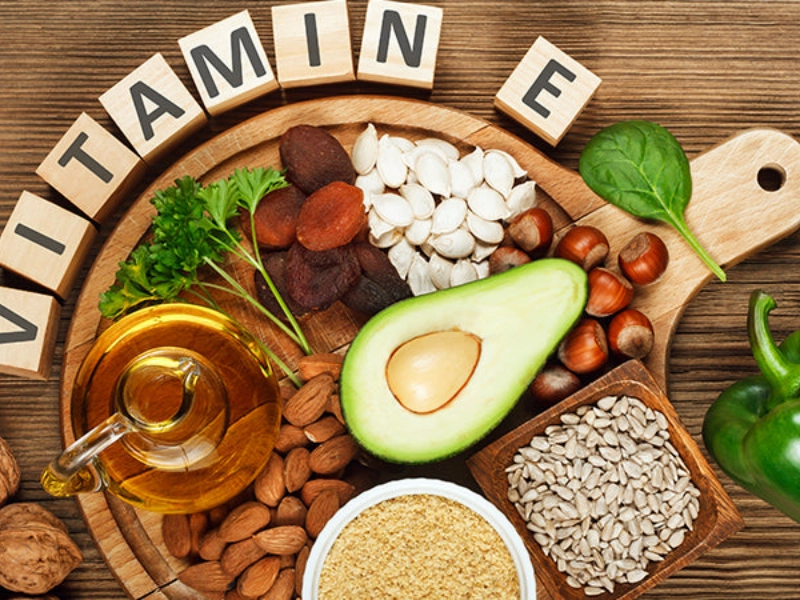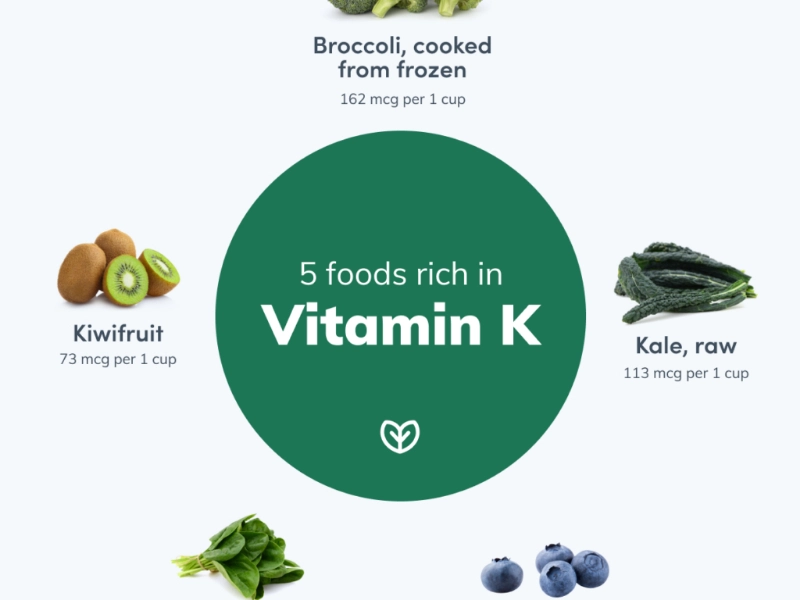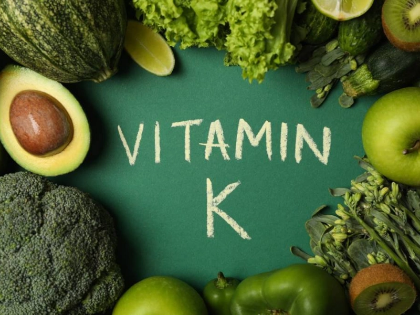Increasing Brain Function: Vitamin C's Advantages for Cognitive Function
The brain makes it possible for us to think, feel, and move. It also consumes a lot of vitamin C, also known as the "scurvy vitamin." According to a recent study, those with higher vitamin C concentrations in their plasma and brain outperformed those with lower quantities on cognitive tests. Other crucial methods for preserving optimal brain function include eating a diet rich in fruits, vegetables, and seafood as well as receiving adequate mental stimulation.
Vitamin C

Vitamin E
 As a fat-soluble antioxidant, vitamin E is critical to the wellbeing of neurons and other cells. It shields them against oxidative damage, which worsens with age and fuels neurodegeneration in diseases like Alzheimer's disease (AD) and other disorders. Improved cognitive function has been linked to elevated plasma levels of vitamin E.
A diet high in vitamin E and low in vitamin C enhanced memory and learning in rats while lowering reactive oxygen species and malondialdehyde levels. A supplement containing 20 mg/d of memantine and 2000 IU/d of alpha-tocopherol significantly slowed the rate of decrease in the Activities of Daily Living score in participants with MCI, according to another trial.
On the other hand, the question of whether a high-level vitamin E intake stops or delays the progression of MCI to AD has not been conclusively answered by other studies. The variations in the age and gender distribution of the participants as well as the methods used to deliver the dietary supplements could be the cause of the heterogeneity observed in these results.
As a fat-soluble antioxidant, vitamin E is critical to the wellbeing of neurons and other cells. It shields them against oxidative damage, which worsens with age and fuels neurodegeneration in diseases like Alzheimer's disease (AD) and other disorders. Improved cognitive function has been linked to elevated plasma levels of vitamin E.
A diet high in vitamin E and low in vitamin C enhanced memory and learning in rats while lowering reactive oxygen species and malondialdehyde levels. A supplement containing 20 mg/d of memantine and 2000 IU/d of alpha-tocopherol significantly slowed the rate of decrease in the Activities of Daily Living score in participants with MCI, according to another trial.
On the other hand, the question of whether a high-level vitamin E intake stops or delays the progression of MCI to AD has not been conclusively answered by other studies. The variations in the age and gender distribution of the participants as well as the methods used to deliver the dietary supplements could be the cause of the heterogeneity observed in these results.
K-complex
 Although studies on other forms of the fat-soluble vitamin have shown more about its significance to the nervous system, scientists have been primarily focused on vitamin K1 (phylloquinone) and its function in blood clotting. Sphingolipids, which are essential for numerous crucial cell signalling functions in neurones and glial cells, can only be synthesised with vitamin K.
Research has connected the serum levels and dietary consumption of vitamin K to cognitive function. In one study, older adults with the highest-consuming diets of vitamin K had superior verbal memory scores than those with the lowest intake.
In a different study, researchers gave rodents additional menaquinone-7 (MK-7), a type of vitamin K2, and discovered that the medication increased mood, improved memory performance, and decreased age-related changes in brain structure in rats. Additionally, as indicated by reductions in hippocampal activity, the therapy attenuated oxidative stress and decreased brain inflammation. This is a crucial part of the brain that is engaged in learning and memory.
Although studies on other forms of the fat-soluble vitamin have shown more about its significance to the nervous system, scientists have been primarily focused on vitamin K1 (phylloquinone) and its function in blood clotting. Sphingolipids, which are essential for numerous crucial cell signalling functions in neurones and glial cells, can only be synthesised with vitamin K.
Research has connected the serum levels and dietary consumption of vitamin K to cognitive function. In one study, older adults with the highest-consuming diets of vitamin K had superior verbal memory scores than those with the lowest intake.
In a different study, researchers gave rodents additional menaquinone-7 (MK-7), a type of vitamin K2, and discovered that the medication increased mood, improved memory performance, and decreased age-related changes in brain structure in rats. Additionally, as indicated by reductions in hippocampal activity, the therapy attenuated oxidative stress and decreased brain inflammation. This is a crucial part of the brain that is engaged in learning and memory.
Folate
 Folate and vitamin B12 act together to lower the body's homocysteine levels, which can cause blood clots and damage to the arteries. In addition to its role in cell division, folic acid plays a crucial role in the development of the foetus during pregnancy. More research is required; however, folic acid appears to aid memory in individuals with mild cognitive impairment and lower levels of circulating inflammatory chemicals.
Lower rates of cognitive deterioration in older persons are linked to high dietary intakes of folate. On the other hand, supplement use is linked to a somewhat faster rate of cognitive change when various adjustments for dietary folate are done (b = -0.01; P =.06).
A limited number of brief randomised controlled trials have investigated the impact of long-term supplementation with folic acid and combination B vitamins on cognitive function in individuals suffering from dementia or Alzheimer's disease. These trials had conflicting results; two found that the supplements considerably improved a range of cognitive tests and indices, while the other showed that the supplements did not improve cognitive function when compared to a placebo.
Folate and vitamin B12 act together to lower the body's homocysteine levels, which can cause blood clots and damage to the arteries. In addition to its role in cell division, folic acid plays a crucial role in the development of the foetus during pregnancy. More research is required; however, folic acid appears to aid memory in individuals with mild cognitive impairment and lower levels of circulating inflammatory chemicals.
Lower rates of cognitive deterioration in older persons are linked to high dietary intakes of folate. On the other hand, supplement use is linked to a somewhat faster rate of cognitive change when various adjustments for dietary folate are done (b = -0.01; P =.06).
A limited number of brief randomised controlled trials have investigated the impact of long-term supplementation with folic acid and combination B vitamins on cognitive function in individuals suffering from dementia or Alzheimer's disease. These trials had conflicting results; two found that the supplements considerably improved a range of cognitive tests and indices, while the other showed that the supplements did not improve cognitive function when compared to a placebo.







